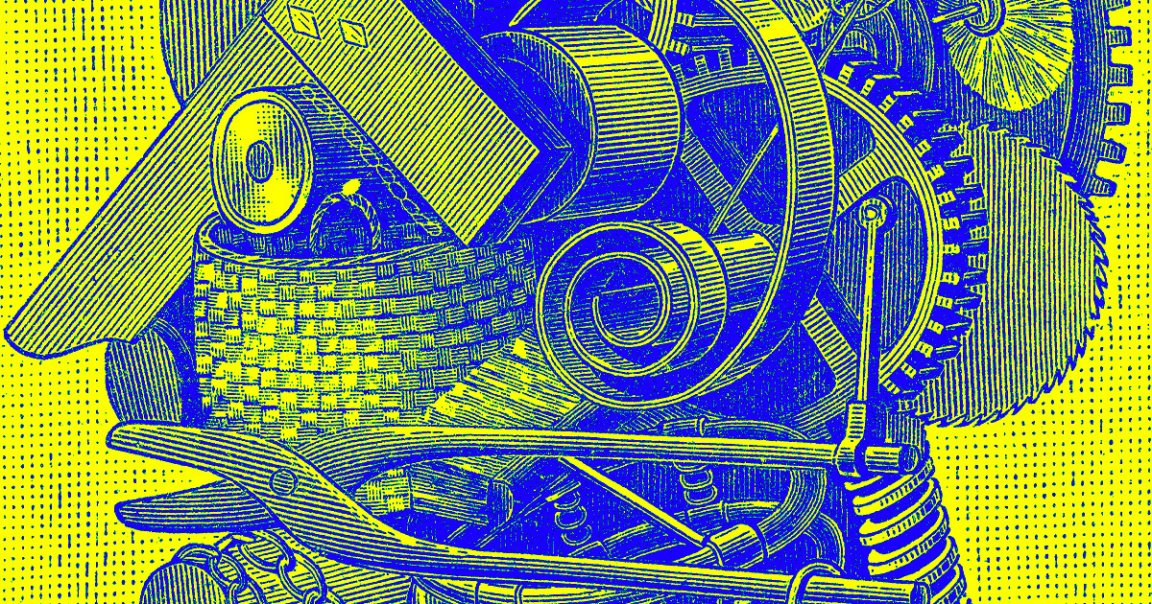
Goldman Sachs wants their customers to know that they should be very excited about generative AI — because generative AI tools could let ’em fire human workers and replace them with AI en masse. Hooray!
“The recent emergence of generative artificial intelligence (AI) raises whether we are on the brink of a rapid acceleration in task automation that will drive labor cost savings and raise productivity,” reads a new Goldman Sachs economic report, published over the weekend.
“Despite significant uncertainty around the potential of generative AI,” it continues, “its ability to generate content that is indistinguishable from human-created output and to break down communication barriers between humans and machines reflects a major advancement with potentially large macroeconomic effects.”
Translation? While the future of generative AI is still up in the air, right now, its output is already comparable, in the bank’s eyes, to the output of enormously costly human labor. Replace humans with machines, and you no longer have to pay for livelihoods — just subscription fees.
Perhaps most chillingly, the Goldman Sachs report describes generative AI as a “disruption” to the “labor market.” And sure, it may well be, but the term “disruption” is usually used to describe significant changes within certain industries, particularly when something new replaces and upends something old. Goldman Sachs is seemingly speaking to the concept of human jobs altogether — a presumably less manageable workforce shift.
In other words, a significant disruption indeed, and one that will cause a significant amount of pain for the masses in turn.
“Using data on occupational tasks in both the US and Europe, we find that roughly two-thirds of current jobs are exposed to some degree of AI automation, and that generative AI could substitute up to one-fourth of current work,” reads the report. “Extrapolating our estimates globally suggests that generative AI could expose the equivalent of 300 [million] full-time jobs to automation.” Gulp.
The report did throw us peasants a bone, echoing a common refrain heard among AI optimists: that AI will replace jobs, but that human society has always adjusted to new technologies over time. Laborers flock to different jobs, and at the same time, new jobs are created, in the short term as well as in the long run. Look how far we’ve come since the birth of the computer, after all.
“The good news,” reads the report, “is that worker displacement from automation has historically been offset by creation of new jobs, and the emergence of new occupations following technological innovations accounts for the vast majority of long-run employment growth.”
Historically speaking, it’s a fair point — but one, we gotta say, that definitely dissociates a bit from the immediate pain that eliminating an estimated 300 million jobs will cause. There’s also the reality that those who repeat that line — OpenAI CEO Sam Altman included in that line-up — have little to offer in terms of what those generative AI-created roles might look like, and when we might expect to see them crop up.
We’re all walking into a new technological unknown, and we can’t expect AI innovators to have all of the answers. But still, it’s hard to take Goldman Sachs’ rosy “good news” outlook seriously when it tends to read more like an excuse to do something, like intentionally eradicate hundreds of millions of jobs, rather than a sound, substance-driven reason that goes beyond just keeping cash in a company’s bank, as opposed to its workers’ pockets.
And to that end, the Goldman Sachs report did round out that “good news” nugget with a sobering piece of economic wisdom: that while there might be an economic growth-inducing “productivity boom” driven by “the combination of significant labor cost savings, new job creation, and higher productivity for non-displaced workers,” the “timing of such a boom is hard to predict.”
So, you know, good stuff will happen for everyone, probably — just can’t tell ya when!
None of this is all that surprising, given that most big employers out there are constantly looking to cut costs of all kinds, labor included. And elsewhere, technology, as mentioned above, has always changed industries, and with that, changed, eliminated, and created jobs.
But that takes time, and generative AI is moving at a lightning-fast pace, with an incredible amount of money behind it to boot. Only time will tell how quickly the “good news” that Goldman Sachs and others have promised will follow.
READ MORE: The Potentially Large Effects of Artificial Intelligence on Economic Growth [Goldman Sachs]
More on banks and generative AI: Bank of America Obsessed with AI, Says It’s the “New Electricity”